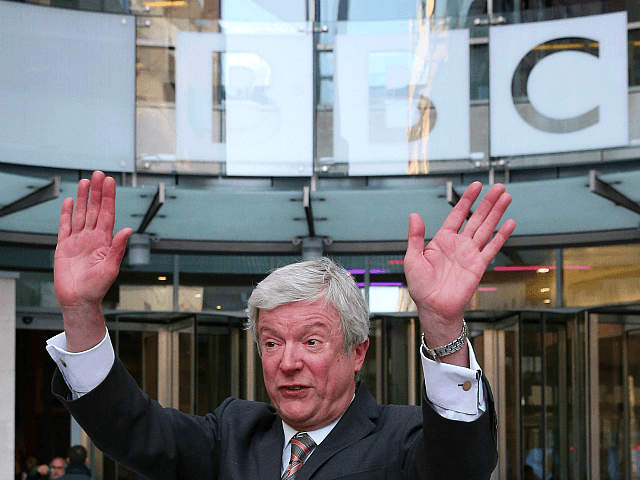The outgoing boss of Britain’s state broadcaster the BBC has discussed the future of the increasingly unpopular television licence fee, eyeing a new universal system paid even by people who don’t own televisions or radios.
The BBC is presently paid for through a so-called licence — in reality a tax on anyone who operates a television or digital device to receive live programmes from any broadcaster, or who watches BBC programming on-demand.
But, despite taking away free licences from over-75s, the number of people who actually pay the fee is falling, as the way in which people consume media is changing and the programming produced by the BBC is becoming increasingly irrelevant to the new generation.
While some Conservatives have suggested the BBC could make itself more competitive and modern by moving to a subscription-based service like new competitors Netflix and Amazon Prime, the outgoing head of the organisation, Lord Hall, believes a better approach would be to make paying for the organisation mandatory for every household.
British newspaper The Times reported the remarks of Lord Hall, the director-general whose tenure ends this week but who is clearly familiar with internal thinking on how to charge the fee in future, that a better solution to falling interest would be to make the tax impossible to avoid. Citing Germany’s household-based tax, Lord Hall suggested the annual fee could be added to other bills like local government property taxes, so those without an interest in receiving the BBC’s services wouldn’t have a way to opt-out.
Lord Hall also said it was worth looking at a system where the amount paid — presently £157.50 a year — would scale depending on how wealthy the household was.
Despite its long-held pretence of being a national broadcaster for all, the BBC has recently been struggling with public perception, juggling efforts to appeal to viewers with trying to appease minority political activists.
One of the clearest examples of this dichotomy of late is the BBC’s handling of the Last Night of the Proms, an annual festival of classical music where traditional British patriotic songs are performed to a live audience.
Apparently bowing to pressure from Black Lives Matter UK, it was reported the BBC would scrap patriotic songs from the broadcast including Rule, Britannia! and Land of Hope and Glory.
It later said the songs would be included, but performed without any words — a compromise that appears to have appeased or pleased no-one. Nevertheless, the furore around the decision has become a lightning-conductor for opinion in the United Kingdom, bringing left-wing figures out of the woodwork to express their displeasure at the kinds of people who enjoy patriotic music.
Labour MP Neil Coyle caused outrage when he called Brexit-supporters “absolute sh*tbag racist w*nkers” in relation to the row, and a BBC producer added to public concern when she compared the ordinary patriotism of Britons to the Nazi gas chambers.
Prime Minister Boris Johnson, for his part, has expressed his embarrassment over the whole affair. He said on Tuesday: “I think it’s time we stopped our cringing embarrassment about our history, about our traditions, and about our culture, and we stopped this general bought of self-recrimination and wetness.”

COMMENTS
Please let us know if you're having issues with commenting.